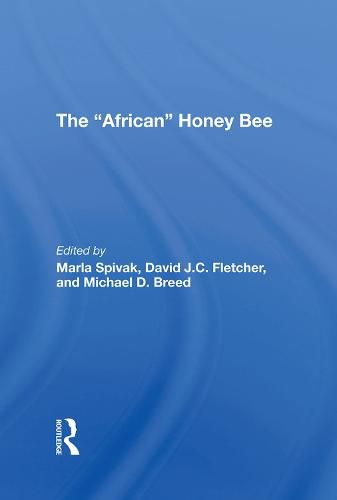Readings Newsletter
Become a Readings Member to make your shopping experience even easier.
Sign in or sign up for free!
You’re not far away from qualifying for FREE standard shipping within Australia
You’ve qualified for FREE standard shipping within Australia
The cart is loading…






This book is the first review of the scientific literature on the Africanized honey bee. The African subspecies Apis mellifera scutellata (formerly adansonii) was introduced into South America in 1956 with the intent of cross-breeding it with other subspecies of bees already present in Brazil to obtain a honey bee better adapted to tropical conditions. Shortly after its introduction, some of the African stock became established in the feral population around Sao Paulo, Brazil, and spread rapidly through Brazil. It has since migrated through most of the neotropics, displacing and/or hybridizing with the previously imported subspecies of honey bees. Africanized bees have been stereotype d as having high rates of swarming and absconding, rapid colony growth, and fierce defensivebehavior. As they have spread through the neotropics they have interacted with the human population, disrupting apiculture and urban activities when high levels of defensive behavior are expressed.
$9.00 standard shipping within Australia
FREE standard shipping within Australia for orders over $100.00
Express & International shipping calculated at checkout
This book is the first review of the scientific literature on the Africanized honey bee. The African subspecies Apis mellifera scutellata (formerly adansonii) was introduced into South America in 1956 with the intent of cross-breeding it with other subspecies of bees already present in Brazil to obtain a honey bee better adapted to tropical conditions. Shortly after its introduction, some of the African stock became established in the feral population around Sao Paulo, Brazil, and spread rapidly through Brazil. It has since migrated through most of the neotropics, displacing and/or hybridizing with the previously imported subspecies of honey bees. Africanized bees have been stereotype d as having high rates of swarming and absconding, rapid colony growth, and fierce defensivebehavior. As they have spread through the neotropics they have interacted with the human population, disrupting apiculture and urban activities when high levels of defensive behavior are expressed.